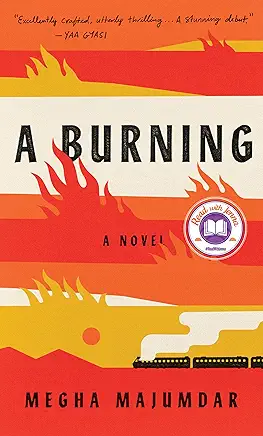
“I am looking at the floor, showing shame. “Don’t worry,” I am saying. “She was my neighbor, but I am understanding now that maybe I was never really knowing who she was.” The shame is burning in my cheeks.” (p. 266) Kindle Edition
After a terrorist attack, Jivan, a young Muslim woman who lives in an Indian slum, makes comments on Facebook that lead to her arrest and land her in jail accused of anti-government actions. While in jail, we learn through Jivan’s experiences and other female inmates’ stories about society’s misogynistic behaviors. One inmate’s husband threw acid on her, but she is the one in jail. And the author says, “These things happen when you are a woman.” Of course, the caste system is open and evident in Indian society, and Jivan’s poverty works against her.
Another main character, PT Sir, a teacher of physical training, had Jivan as a student. PT Sir is power-hungry and aspires to be more influential than a teacher. The teacher reveals his duplicity as he gets involved in a conservative political party that works against Jivan. He supposedly wants to improve teachers’ lives and is successful in getting teachers to support his party. He is really working to better himself, and as his clout within the party increases, we see how sleazy he is and how little regard he has for truth and morality. PT Sir proves that he can be expedient in maintaining law and order, and his actions have devastating results for Jivan.
Before her arrest, Jivan had been teaching English to another character, Lovely, a hijra (third gender in India). Lovely aspires to be an actress, and she has a unique ability to prove Jivan’s innocence. However, society and the events of the story become more complicated than expected.
Jivan naively tells her innocent story to Purnendu Sarkar, a reporter who uses his media and male privilege to twist her words and make her appear guilty. This element of the story further develops the theme of dishonesty and the media’s role in perpetuating misinformation.
Many of the characters in this novel are pursuing dreams in a society that doesn’t support them. There are so many societal conflicts that Megha Majumdar attempts to weave into this novel—innocence vs. guilt; truth vs. fabrication; ignorance vs. sophistication; power vs. weakness, and much more.


